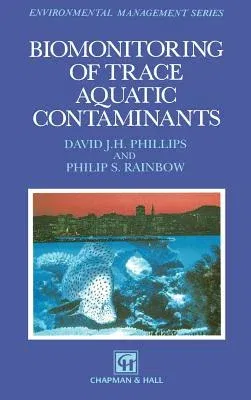David J H Phillips
(Author)Biomonitoring of Trace Aquatic Contaminants (1993)Hardcover - 1993, 8 September 1998

Qty
1
Turbo
Ships in 2 - 3 days
In Stock
Free Delivery
Cash on Delivery
15 Days
Free Returns
Secure Checkout

Part of Series
Ettore Majorana International Science
Print Length
371 pages
Language
English
Publisher
Springer
Date Published
8 Sep 1998
ISBN-10
0412538504
ISBN-13
9780412538506
Description
Product Details
Book Edition:
1993
Book Format:
Hardcover
Country of Origin:
US
Date Published:
8 September 1998
Dimensions:
22.86 x
15.24 x
2.54 cm
ISBN-10:
0412538504
ISBN-13:
9780412538506
Language:
English
Location:
Dordrecht
Pages:
371
Publisher:
Weight:
734.82 gm